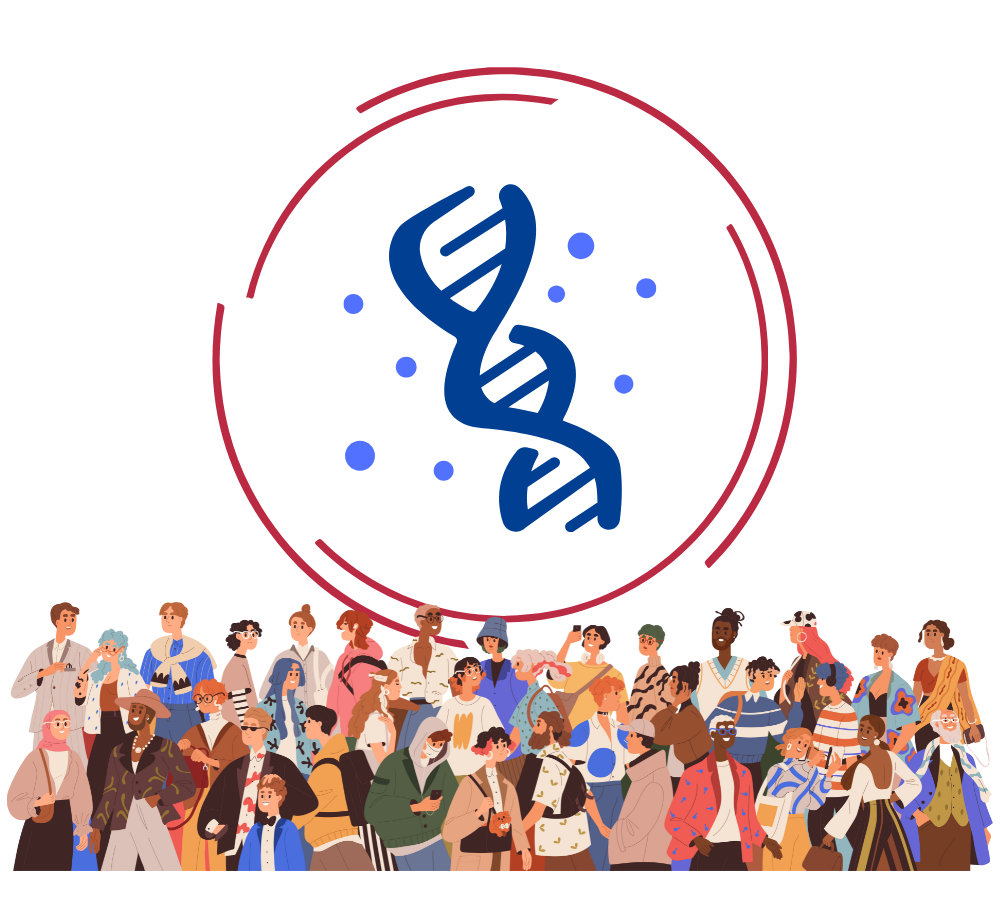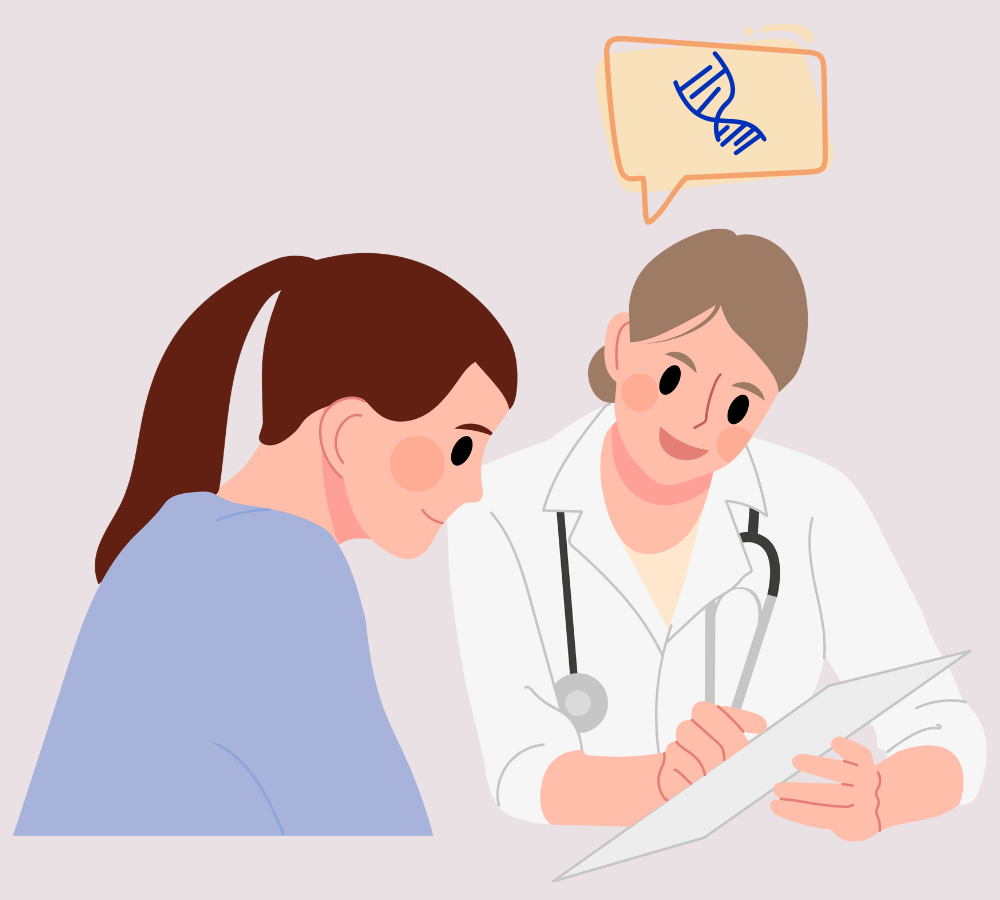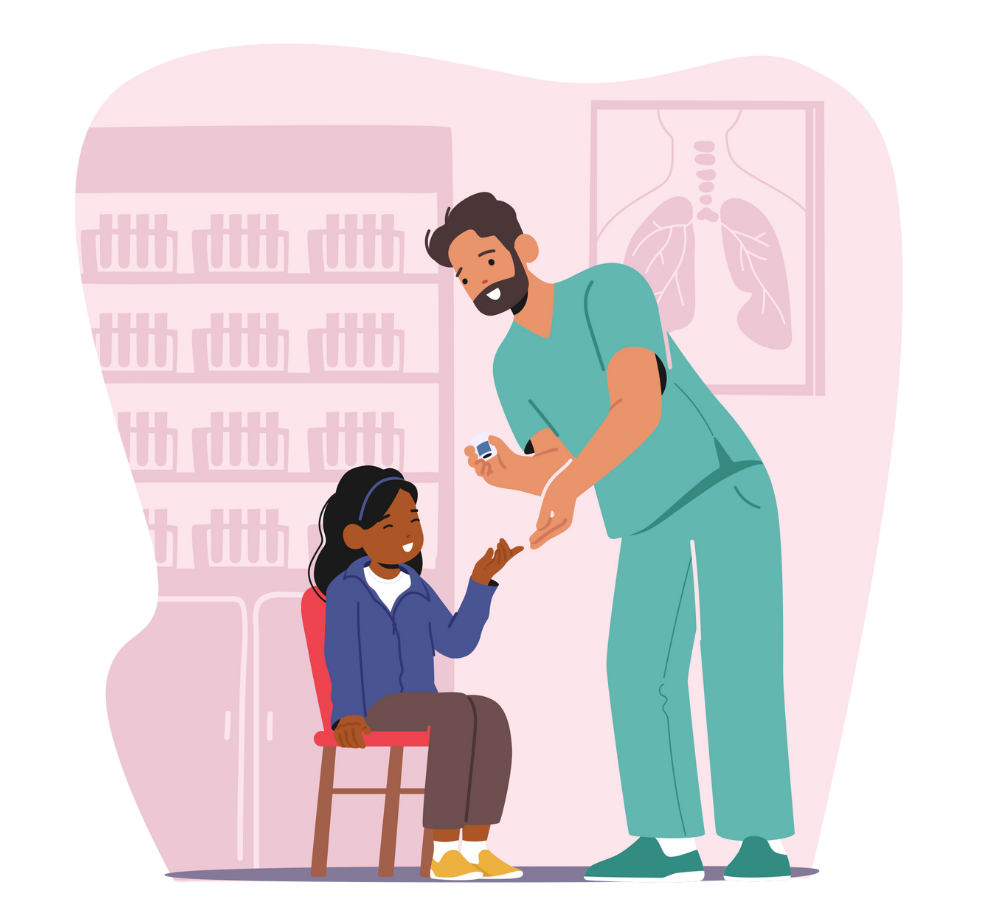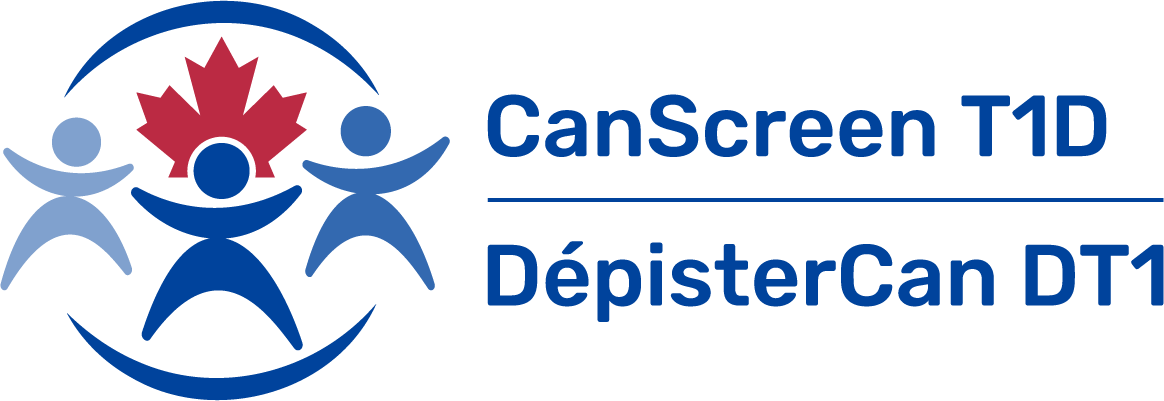Through nine distinct projects, the CanScreen T1D research consortium will address the following three key and interrelated research themes:
- 1
Acceptability
- 2
Feasibility
- 3
Follow up & monitoring
These are supported by cross-cutting themes of community engagement, equity, diversity and inclusion (EDI), sex- and gender-based analysis plus (SGBA+), knowledge translation, and Indigenous health.
These activities will inform each other and shape the design of a pilot that will evaluate two screening strategies: a genetic approach in newborns and a diabetes-related autoantibodies (Ab) approach in children of different ages, aligning with approaches in other countries.
Theme 1: Acceptability
Lead: Dr. Robin Hayeems
Citizen engagement and stakeholder dialogue
Team: Robin Hayeems (Principal Investigator), Audrey L’Espérance, Holly Witteman
This project will deliver a critical analysis and summary of citizens’ and stakeholders’ perspectives on the acceptability of population screening for T1D. Specifically, it will provide practical guidance on the appropriate methods for educating and enrolling the target population, preference-sensitive consent models and decision aids for future participants, screening and monitoring procedure and timeline, equipping healthcare providers, and generating a core outcome set to integrate into the pilot screening program. Click here to read more.

Self-determined Indigenous research about T1D screening
Team: Jon McGavock (Principal Investigator), Sasha Delorme (co-principal investigator), Diabetes Action Canada Indigenous Patient Circle.
This project will create a network of Indigenous patient partners and communities interested in T1D screening and a set of priorities by First Nations and Métis patients, leaders and youth for T1D screening and research. Together, we will co-design a protocol for undertaking T1D screening in First Nations and Métis communities done in a culturally safe way that follows principles of ethical conduct and data collection, sharing, and storage. Click here to read more.

Patient decision aids for screening, follow up, and enrolment in trials
Team: Holly Witteman (Principal Investigator), Conrad Pow, Sasha Delorme, Peter Senior, Robin Hayeems, Ashish Marwaha
This project will deliver patient decision aids ready for use in practice to help families in Canada make evidence-informed, values-aligned decisions about screening for T1D, follow up, and enrolment in clinical trials. Final versions of decision aids will have been carefully tested in English and French, then translated into seven other languages spoken by over 125,000 people according to Statistics Canada (Mandarin, Punjabi, Spanish, Arabic, Tagalog, Persian (Farsi), Urdu). The project members will also work with Sasha Delorme and members of the Indigenous Patient Circle to explore possible Indigenous-led cultural and linguistic adaptations. Click here to read more.

Developing a Core Outcome Set (COS)
Team: Robin Hayeems (Principal Investigator), Pranesh Chakraborty
This project will generate a Core Outcome Set (COS) for T1D screening that will be integrated into the pilot screening program. The Advisory Committee will establish a set of outcome measurement instruments for the COS. We will consider the relevance, feasibility, cost, validity, and reliability of each instrument following the COnsensus-based Standards for the selection of health Measurement INstruments (COSMIN) guidelines. The final COS will be circulated to international colleagues and patient organizations for feedback before they are finalized. Click here to read more.

Theme 2: Feasibility
Lead: Dr. Ashish Marwaha
Establishment of Canadian clinical autoantibody lab
Team: Albert Tsui (Principal Investigator), Peter Senior, Constadina Panagiotopoulos, Elizabeth Rosolowsky, Ashish Marwaha, Pranesh Chakraborty, Diane Wherrett
This project will choose and implement an autoantibody (Ab) screening and confirmatory method in Alberta Precision Laboratories. Ab assays are important for screening, clinical trial inclusion, and diagnostic uncertainty but there is no Canadian laboratory that provides a comprehensive analysis of all Ab. We will explore both multiplexed home testing kits that could be used as a first-step screening test and confirmatory assays that would be equivalent to the current gold standard to be performed in a clinically accredited laboratory (Alberta Precision Laboratories). We will determine the feasibility of implementing T1D Ab assays into routine clinical laboratory testing and scale up for the general population. Click here to read more.

Creation of a Canadian T1D genetic data repository to validate a trans-ethnic genetic risk score (GRS)
Team: Despoina Manousaki (Principal Investigator), Ashish Marwaha, Constantin Polychronakos, Angeliki Makri, Andrew Paterson, Constadina Panagiotopoulos, Richard Oram, Carol Huang, Elizabeth Rosolowsky, Rémi Rabasa-Lhoret, Lucie Dupuis
This project will create a database for genetic data from different ancestries in the diverse Canadian T1D population and validate whether an existing T1D GRS2 or a new trans-ethnic GRS (GRS involving multiple ethnic groups) is best to use in a Canadian T1D Screening Program. No data exist on the multi-ethnic Canadian population. However, an equitable population-wide screening program requires a T1D GRS that can perform equally well across ancestries to avoid worsening health care disparities. Click here to read more.

Theme 3: Follow Up and Monitoring
Lead: Dr. Diane Wherrett
Establishing an integrated network for clinical follow up and intervention trials in Canada
Team: Peter Senior (Principal Investigator), Diane Wherrett, Ashish Marwaha, Jan Dutz
This project will support the necessary infrastructure to successfully enrol individuals identified with multiple autoantibodies (Ab) in the pilot screening program into a metabolic monitoring program (Project 9). These include a platform to conduct multi-centre clinical trials in T1D prevention, a seminar/workshop series supported by regular communications to build and sustain the T1D research network, and a clinical supporters network of health care providers interested to support T1D screening and early interventions. Click here to read more.

Genetic counselling and education materials for GRS/Ab screen-positive individuals
Team: Ashish Marwaha (Principal Investigator), Robin Hayeems, Audrey L’Espérance, Pranesh Chakraborty, Holly Witteman, Lucie Dupuis
This project will develop a pre-test genetic risk score (GRS) counselling information leaflet, GRS research report, webinar genetic counselling session for GRS positive cases, online resource and an education session for autoantibody (Ab) screen positive families for implementation in a pilot CanScreen T1D program. Click here to read more.

Metabolic monitoring
Team: Diane Wherrett (Principal Investigator), Nadine Taleb, Bruce Verchere, Holly Witteman
This project will develop a comprehensive plan for follow-up of people with multiple autoantibodies (Ab) to better predict the future onset of T1D, explore novel biomarkers (new indicators of T1D in the body) and identify candidates for preventative therapies. Click here to read more.

Pilot T1D Screening Program
Leads: Dr. Diane Wherrett and Dr. Neal Sondheimer
Team: Diane Wherrett (Co-Principal Investigator), Neal Sondheimer (Co-Principal Investigator), Yves Giguère, Hilary Vallance, and other project leads
The findings from projects 1 to 9, mentioned above, will feed into the development of the pilot T1D screening program. We will perform a pilot of the screening system to assess its acceptability and feasibility, generate evidence to support policy decisions around population implementation and identify any additional policy questions and evidence gaps to enable pan-Canadian implementation.
Objectives
Our primary objective is to understand the acceptability of the piloted screening system. Our secondary objectives are to:
- Evaluate decision aids and post-test counselling and education materials,
- Understand the feasibility of the piloted recruitment mechanisms,
- Obtain an approximate costs for budget impact assessment, and
- Estimate adherence to an autoantibody (Ab) surveillance protocol.
Background
The specific genetic risk score GRS2 can be used to identify infants at higher risk of developing T1D with high sensitivity by using a risk threshold that identifies 10% of the population as screen positive. These higher risk infants then receive surveillance testing for the development of Ab. Those with multiple Ab have a T1D life-time risk that approaches 100%.
We have designed pilot protocols to enable accurate budgeting for the proposed work and to present these as options to the patient/citizen panels described in the acceptability theme projects. Co-designing the pilot, however, will require adaptation of the protocol to incorporate knowledge and feedback gained from the acceptability and the feasibility theme projects described above.
In addition, there will likely be a need for an opt-in/consenting mechanism different from the ones used for current newborn screening which primarily use an opt-out/informed dissent model.
A future screening system will need to include meaningful education and information about the availability of a choice to participate in screening and the accessibility measures. We will use the decision aid developed in Project 3 to help support families’ discussions with health professionals. We plan to structure our pilot screening program to offer participation that can translate into existing provincial newborn screening programs, which is consistent with the need for research consent.
Click here to read more.

